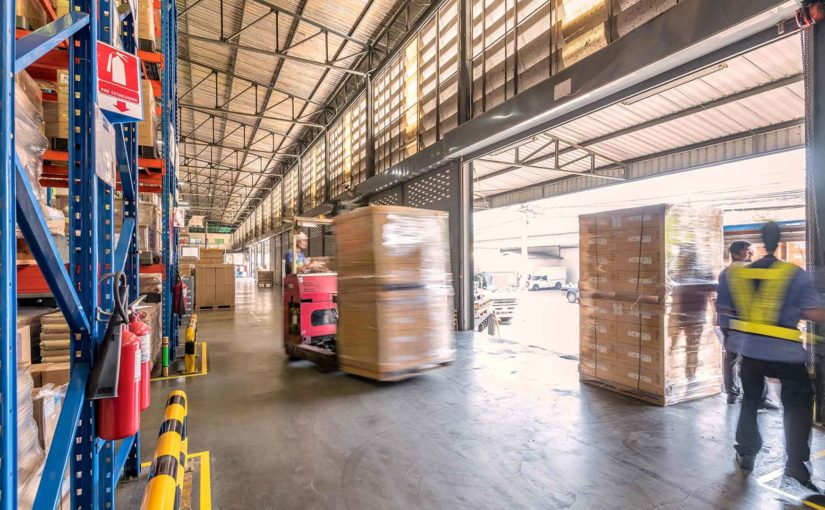From improving time management and refining processes to cutting costs and eliminating waste, companies all over the country are continuously looking for better ways to manage their supply chain. In fact, according to a report from Armstrong & Associates, 90 percent of Fortune 500 companies in the United States were working with third-party logistics providers in 2017—a major increase over almost two decades of analytics.
While outsourcing supply chain management is becoming a common practice, it doesn’t mean it’s right for everyone. According to Mardaasa Addisu, a National Supply Chain Engineer at Airgas, companies considering third-party expertise should know the pros and cons of outsourcing supply chain management before committing. Below are some considerations to bear in mind when vetting potential supply chain partners.
Consideration #1—Costs
Pro: Experts can save you money in ways you didn’t know were possible.
Working with a third-party supply chain management expert can help you create the most cost-effective plan for your facility. A specialist can execute a planned process seamlessly while working closely with material providers and transportation fleets to find the areas where costs can be cut. Not to mention, they can streamline your inventory management needs to meet your budget.
In a typical facility, according to Addisu, the role of ordering safety products and hardgoods like welding equipment, accessories and consumables, is added to an employee’s daily workload but may be outside their primary job function. Addisu points out that instead of giving this task to someone on your team who may have a high labor rate, you can save money and free up internal capacity by outsourcing the ordering of gases, welding hardgoods, safety products and other inventory to a third-party expert.
Con: Experts come at a price
Just as working with a third-party expert can help eliminate costs, facilitating change within your company is not done free of charge. Besides costs associated with your overall contract, additional costs may arise for such services as employee training and change-management implementation.
Addisu advises thoroughly reviewing your contract to ensure the solution and services you’ll receive align with your organization’s overall needs and priorities. This way you avoid paying for unnecessary services and guarantee all needs are met.
Consideration #2—Change Management
Pro: An expert is just that—an expert
By partnering with the right third-party expert, you’re working with someone who understands your industry and supply chain needs. Addisu urges, however, that you ensure their expertise includes gases, especially with a focus in cylinder management and safety. Adding those areas of focus to your supply chain solution can create more efficiencies and savings while also improving safety by reducing risk when handling cylinders.
Con: Supply consolidation could lead to conflict
Brand loyalty should not be underestimated—especially when it comes to the products your team uses every day. When working with a third-party expert, make sure they can procure the products your employees prefer or, at least, provide a comparable option.
Changing or limiting product selection can unintentionally put a damper on team morale. Get acquainted with brands and products your team uses and, if possible, include their input as part of your evaluation process.
Consideration #3—Freeing up internal capacity
Pro: Your to-do list gets shorter
Having a dedicated third-party expert working on key aspects of your supply chain will save you and your team time, specifically when it comes to having the right products on-site when you need them. “Typically employees would have to go to a depot or supply center to acquire the needed equipment,” says Addisu.
With a third-party expert doing the heavy lifting within your supply chain, you can focus on areas that need more attention like organizational growth and customer relations.
Con: Change is hard
Change takes time, plain and simple. And it may come with a few bumps at first. The most common issues experienced early on generally come from misunderstandings due to a lack of communication or anticipated timelines not being met. When these setbacks happen, Addisu notes that they can be resolved with proper planning and more strategic communication.
Two final pieces of advice
Lastly, Addisu offers two key recommendations:
1. Don’t settle for the first vendor you find
When searching for the perfect third-party expert to take on your supply chain challenges, Addisu advises talking with your peers, reading reviews and taking note of who is available in your area.
2. Know if it’s working—sooner than later
You’ll know things are headed in the right direction when you and your team are able to focus more on what matters most: meeting your customers’ needs while getting your work done more efficiently and cost effectively.

Nice Blog, very informative. When it comes to International business Supply Chain & Logistics Companies are very helpful.
Such a great blog because it contains a lot of information which is superb.
http://dclutter.in/